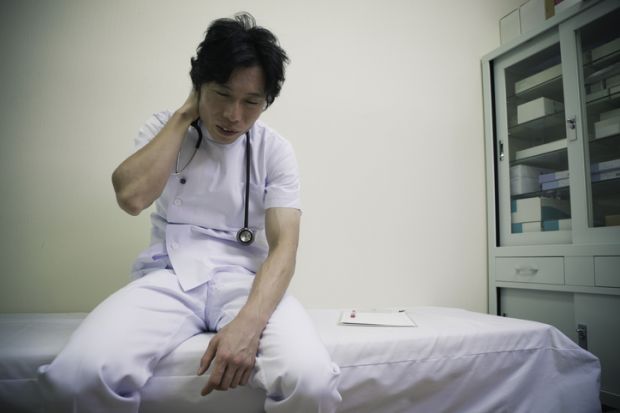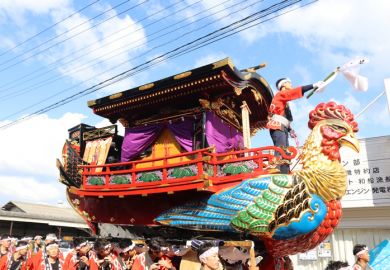The heavy burden of clinical hours and administrative duties has left Japan’s university doctors struggling to devote time to research – and could result in big shortcomings in the field, scholars warn.
Writing in The Lancet, two Keio University researchers emphasise the “seriousness of the situation”, as reflected in recent figures.
Amid an overall decline in Japanese research since the early 2000s, faculty members at universities have “been forced to devote more time to education and social service activities”, write Shotaro Kinoshita and Taishiro Kishimoto.
The authors note the “appalling results” of a 2023 survey covering 81 universities, which found that on average, 50 per cent of professors and almost 65 per cent of assistant professors spent less than five hours per week on research.
With changes this coming April prohibiting physicians from working more than 960 hours of overtime a year, the authors worry that even less time will be given over to undertaking lab work and clinical trials – tasks that ultimately help to advance medicine.
“Although securing research hours for university hospital physicians in Japan has been a problem, there are fears that the situation could further worsen,” the authors write.
Noriko Osumi, a neuroscientist and vice-president for diversity at Tohoku University, agreed that “this has been a very serious problem in Japan”.
She traced the issue back to Tokyo’s restructuring of public universities into “national university corporations” in 2004, a move that reduced their government funding – something the authors also note.
“To deal with decreased budgets, medical doctors in university hospitals need to do more clinical work to earn money for the universities,” she said.
Professor Osumi said that ideally, Japanese physician-researchers would spend roughly 20 hours a week on research – compared with the 40 to 50 hours of a full-time researcher, although she conceded that this might be more research than some clinicians would want to do.
To carve out more time, Japan’s government and universities could bring in more professional nurses, assign some of doctors’ current tasks to other staff and promote digitisation – something that is sorely needed, with much of Japan’s record-keeping still done using paper and faxes.
But some of these changes will require a shift in mindset, Professor Osumi said.
“In Japan, clinical research is not [easily] done by PhD researchers, who have no access to clinical data, which is also the basis of why medical research especially declines in Japan…Unfortunately, in [the] clinical department, graduate students are also medical doctors and they also need to work at hospitals.”
Akira Mori, a scholar at the Research Center for Advanced Science and Technology at the University of Tokyo, said that while the lack of time for research was a serious concern for the medical field, the problem was widespread, with government support to universities having “notably” decreased in recent years – constraining research while “simultaneously increasing obligations in education and public services”.
“I see no compelling reason to specify this issue as unique to university physicians,” he said, adding that the problem affected disciplines from the sciences to the humanities.
“A significant shift in governmental support is essential to reverse the situation in university research capabilities across all fields.”
Register to continue
Why register?
- Registration is free and only takes a moment
- Once registered, you can read 3 articles a month
- Sign up for our newsletter
Subscribe
Or subscribe for unlimited access to:
- Unlimited access to news, views, insights & reviews
- Digital editions
- Digital access to THE’s university and college rankings analysis
Already registered or a current subscriber? Login








